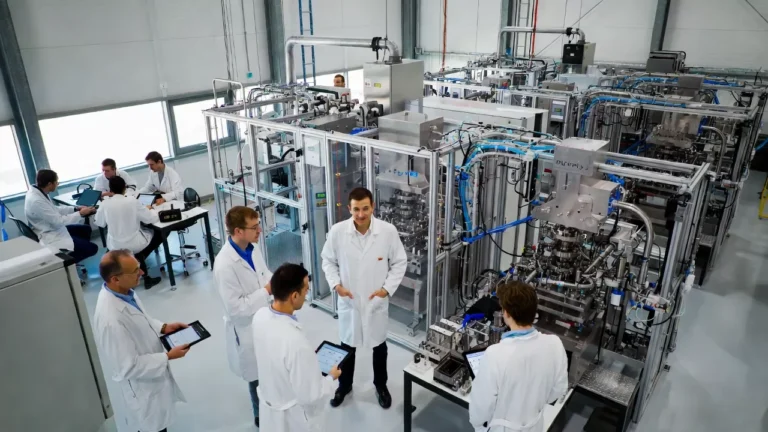
AkzoNobel and its partners have embarked on a groundbreaking approach to tackling carbon reduction challenges through their first-ever global Collaborative Sustainability Challenge. This initiative, which recently concluded in Amsterdam, brought together a diverse group of stakeholders from the paints and coatings industry to collectively accelerate the reduction of carbon emissions.
The event, characterized by 24 hours of intensive discussions and collaboration, resulted in the formation of several high-impact exploration teams. These teams, comprised of senior and next-generation leaders, will work collaboratively to address key areas such as energy transition, process efficiency, solvent emissions, and circular solutions. A total of 27 partners, including suppliers, customers, end-users, as well as representatives from finance, government, service providers, and consultancies, have signed up to participate in this ambitious effort.
One of the primary objectives of these teams is to overcome existing barriers to the adoption of disruptive new process technologies. By reimagining traditional business models and fostering collaboration among suppliers, manufacturers, and applicators, these teams aim to drive innovation and accelerate the implementation of sustainable solutions.
Thierry Vanlancker, CEO of AkzoNobel, expressed his enthusiasm for the event, emphasizing the importance of collaboration in achieving ambitious climate targets. He highlighted the value of exchanging ideas and making a collective commitment to accelerate the sustainability journey.
Jan-Peter Balkenende, Chair of the Dutch Sustainable Growth Coalition and former Prime Minister of the Netherlands, also praised the event’s outcomes. He commended the passion and creativity of the industry partners involved, noting their commitment to driving significant changes across the value chain. Balkenende emphasized the opportunity for collective action to accelerate effective solutions for addressing climate change.
AkzoNobel has set science-based sustainability targets to halve its carbon emissions across the full value chain by 2030. Achieving these targets will require close collaboration with partners and a commitment to finding innovative solutions to complex challenges. The exploration teams formed during the Collaborative Sustainability Challenge will play a crucial role in advancing this agenda.
As Vanlancker emphasized, the key now is to maintain the momentum generated during the event and to harness the energy and creativity of all stakeholders. By developing a networked ecosystem focused on sustainability, AkzoNobel and its partners aim to shape a more sustainable future for the industry.








